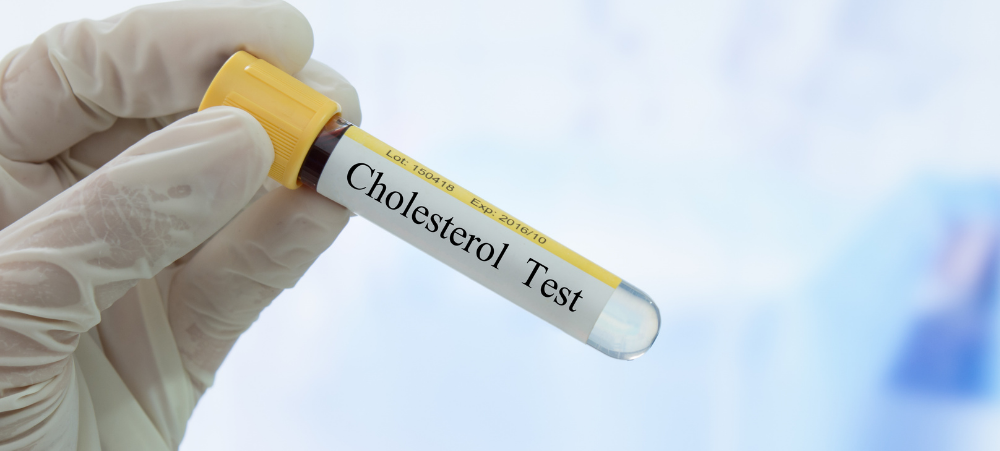The American Academy of Paediatrics (AAP) Committee suggest that infants as young as two years old need to be screened for high cholesterol, and children as young as eight years old should be put on prescription statin drugs. In a nutshell, they were saying: Research in children and adolescents has demonstrated that some potential risk factors for cardiovascular disease may be present at a young age and paediatricians must initiate the lifelong approach to prevention of cardiovascular disease in their patients by considering pharmacological intervention for patients 8 years and older.
These guidelines were approved by the FDA even though statin drugs have never been tested on young children. In other words our own 8 year old children would be the guinea pigs! Some physicians warned that the AAP is being hasty in its recommendations, given the lack of data on the long-term effects of statins in children and uncertainties about the ultimate benefits for younger statin starters. “To be frank, I’m embarrassed for the AAP today,” Lawrence Rosen, MD, from Hackensack University Medical Center in New Jersey, told the New York Times. “Treatment with medications in the absence of any clear data? I hope they’re ready for the public backlash.”
New guidelines
Fortunately these recommendations were replaced with a recommendation for cholesterol screening for all children age 9-11 with a retest at age 17, even in the absence of risk factors for heart disease.
Is the conventional medical profession likely to follow this advice and place children as young as 9 years old on statin drugs, even without a single safety test having ever been conducted with children taking these powerful chemicals? Given the potential risks of harm from statins such as disruption of hormone production, including sex hormones, loss of cellular energy and muscle function, kidney failure, erectile dysfunction, mental confusion, amnesia and many more, is this what we want to see in our 9 year old boys and girls?
The so-called specialists on the AAP committee say: “Kids are getting fatter, laying the groundwork for a future of cardiovascular disease unless something is done to stop the cascade”. Yes of course, something needs to be done but does it have to be a drug intervention? What about a simple nutritional and weight management intervention?
Treat them, don’t drug ‘em
What if these children really do have high cholesterol? Well a nutritional therapist’s approach would firstly look at the underlying health problem in this case. Chances are that a child diagnosed with high cholesterol at the age of nine may have been a victim of dietary abuse. To imbalance a child’s cholesterol at such an early age would usually require the consumption of large quantities of junk food, processed and fried foods and trans fatty acids with a dangerous lack of plant-based nutrients. A diet high in fresh, raw vegetables and fruit, sufficient fibre and the right proteins and fats, including omega-3 essential fatty acids, will achieve good results in a matter of weeks. Fresh, non-processed, living foods is what is needed here to reverse potential heart disease and normalise cholesterol.
Behavioural drugs
Children are also increasingly being prescribed drugs to manage behavioural problems. Does this mean children are becoming increasingly difficult to control or perhaps we are breeding Ritalin-deficient children? The redefinition of Attention Deficit Hyperactivity Disorder (ADHD) in 1994 led to a near doubling of the number of children diagnosed with this condition and an equal increase in the sales of Ritalin.
In this crazy world we live in, what could be nicer than indulging in a bit of day dreaming? Yet today a dreamy child is diagnosed as having an illness and medical aids very kindly pay for their drug treatment. A disruptive child may quiet down on this medication and everyone thinks the problem has gone away, meanwhile the underlying issues remain unaddressed. A startling new study of thousands of Canadian children should make us think hard. It found that overall, these drugs have no long-term benefits whatsoever. If anything kids on Ritalin had worse outcomes than others. (However, for a small percentage of children, effective treatment for ADHD is a lifesaver and we should not lose sight of this.)
Conclusion
Are we creating a generation of druggies? Today it is not uncommon for school children to be taking powerful medical drugs just like their parents. Please keep your children drug-free and safe using nutrition and natural medicine and remember: Children need love, especially when they do not deserve it.
We understand that there are many aspects that encompass a Mother, Father or Child and strive toward providing resources and services that accommodates this.
Our content is aimed to inform and educate families on issues starting from pregnancy through to the challenges of the teen-age years.
- Say Hello to the Ultimate Holiday Brunch Bite - December 17, 2025
- Tiny Toons Looniversity Returns: Meet the Voice Behind Plucky and Hamton! - December 12, 2025
- From Pain to Possibility: Panado®’s New Marketing Campaign, Highlights The Joy Of Pain Relief - December 10, 2025





